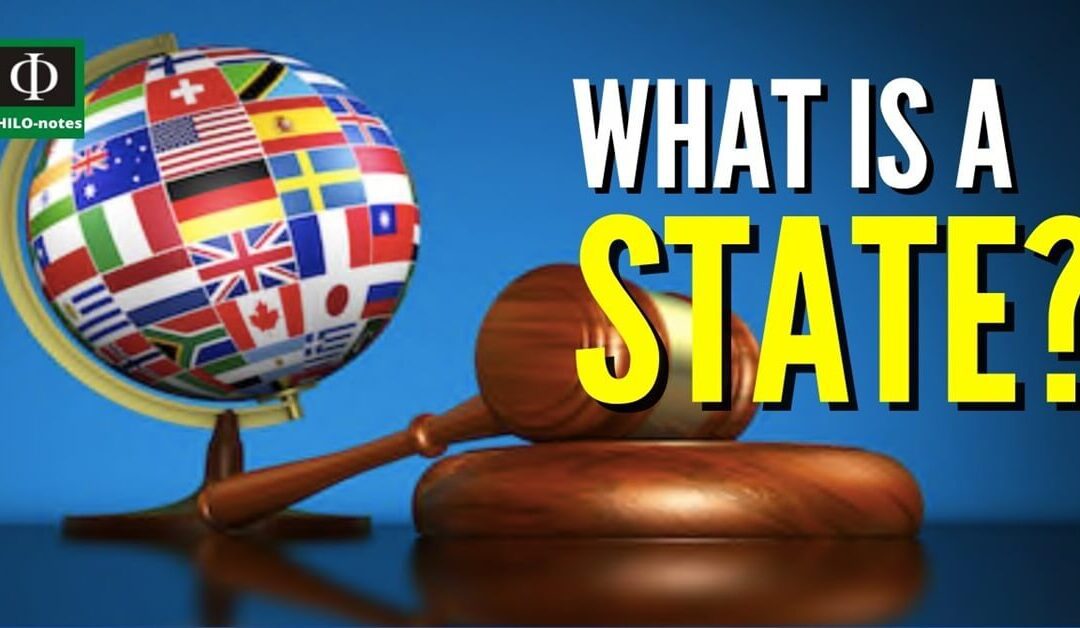Introduction:
The state is the foundation of political science, providing structure for governance and society. From Aristotle’s “polis” to Machiavelli’s modern idea, it has evolved to maintain order, resolve conflicts, and support growth. The state is central to understanding governance and human interaction in organized societies throughout history.
Definitions of the State
Aristotle:
“The state is a union of families and villages having for its end a perfect and self-sufficient life.”
Max Weber:
“The state is a human community that claims the monopoly of the legitimate use of physical force within a given territory.”
J.W. Garner:
“The state is a community of persons, more or less numerous, permanently occupying a definite portion of territory, independent or nearly so, of external control, and possessing an organized government to which the great body of inhabitants render habitual obedience.”
Woodrow Wilson:
“The state is a people organized for law within a definite territory.”
Harold J. Laski:
“The state is a territorial society divided into government and subjects, claiming, within its allotted physical area, a supremacy over all other institutions.”
George H. Sabine:
“The state is an association which, acting through law as promulgated by a government endowed to this end with coercive power, maintains within a community territorially demarcated the universal external conditions of social order.”
These definitions highlight the state’s key elements: people, territory, government, sovereignty, and the role of law and order.
Political science, as a field of study, revolves around understanding the intricacies of the state and its governing systems. At its core, political science examines the fundamental relationship between the state and the government, two concepts that are deeply intertwined. A government cannot exist without the presence of a state, and without a state, political science itself loses its essence. The state forms the very foundation upon which political structures, institutions, and governance systems are built, making it a central focus of political inquiry.
In human societies, conflict is a natural occurrence, as individuals and groups have diverse needs, interests, and values. To maintain peace and order within such societies, the creation of state institutions becomes crucial. These institutions serve to protect individuals and promote their development, ensuring a functioning social structure. Aristotle, one of the earliest political thinkers, recognized the inherent social and political nature of human beings. He famously stated that “man is by nature a political animal,” highlighting the inextricable link between human existence and political organization.
While the concept of the state has its roots in ancient history, dating back to thinkers like Aristotle, the term “state” itself did not emerge until much later. The ancient Greeks, such as Plato and Aristotle, referred to it as the “polis” or city-state. Similarly, the Romans used terms like “Civitas” and “Republic” to describe their political entities. These early conceptualizations of the state were often city-centered, focusing on small, self-contained political units.
It wasn’t until the 16th century that the word “state” as we know it today came into common use. This shift is attributed to the Italian political thinker Niccolò Machiavelli, who used the term in his famous work The Prince. Machiavelli’s treatise marked a significant evolution in political thought, as it introduced the idea of the state as a distinct entity that holds sovereignty and governs over a defined territory and population. His use of the term “Rajya” in the context of the state laid the foundation for modern political theory and governance structures.
The historical evolution of the concept of the state reflects the complexity and importance of political organization throughout human history. From the ancient Greek polis to Machiavelli’s 16th-century articulation, the state has always been central to the development of political science. As human societies have evolved, so too has our understanding of governance, power, and the role of the state in shaping the lives of individuals and communities. Today, the state remains a cornerstone of political analysis, influencing not only governance systems but also our understanding of human interaction within organized societies.
Conclusion
In conclusion, the state is not just a political entity, but a fundamental structure that underpins human society and governance. It has evolved through history, from the ancient Greek polis to the modern state as defined by political thinkers like Machiavelli. The state provides order, stability, and protection to individuals, playing a crucial role in resolving conflicts and promoting societal growth. Political science, as the study of these structures, remains deeply connected to the state, exploring its complexities and guiding the development of governance systems. The state is, and will continue to be, an essential part of human civilization and political thought.

